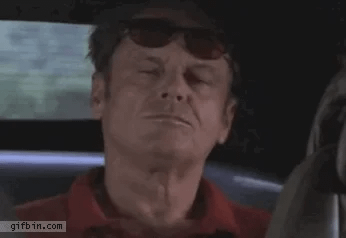In the last four and a half months I have — crudely, unscientifically and entirely without permission — divided the world into two.
In the first group are people who get up soon after waking, make it through the day without questioning whether the effort might kill them, and climb into bed ready (or at least willing) to do it again.
I used to be one of those people: a sweet, clueless fool.
Then my mum died and I passed into a new reality.
Now I’m in the second group.
The second group is composed of people who wake up wondering how they’ll survive until bedtime, who keep themselves going with mottos like “stay in the day”, go to four grief support groups a week and still feel like it isn’t enough, people who feel wobbly all the time, like the whole enterprise of their existence is built on shifting sand and they could be beached at any moment.
Second group people only experience elation when the clock hits 11.50 PM and it looks like they might make it until midnight.
I don’t think it’s only the bereaved that fall into this category. There are people experiencing mental illness of different kinds, the recently dumped and the generically lonely, among others.
People that their (group one) friends and acquaintances probably assume are pretty much like them.
They may even think we relax enough to sit down and watch TV in the evening, that we don’t spend most of our days crying, and that we shower, shop and clean on some kind of regular schedule.
I used to think that, too. I knew grief must be awful but I didn’t understand that it altered everything, that a shocking and profound loss destabilises you completely.
Even though I had experience of depression, anxiety and chronic illness, my mum’s existence always made me feel tethered in the world, safe and loved.
Now I feel like I could float away at any moment.
I think Cariad Lloyd says it best in her book about grief, You Not Are Not Alone:
“If you haven’t experienced big G grief yet, I know it can be hard to believe that a death, just one death, can split your life in half, into pieces, into tatters. It’s not easy to explain to those on the outside that when you love someone and then they die, it breaks your soul... You’re left with a gap inside you.”
It’s brutal to realise there are people (very, very many of them) who are just clinging on, who can’t bring themselves to care about much more than their horrible feelings and their struggle to keep going.
We’re the people who dread mornings and new years and Christmas. Who don’t feel comfortable in our bodies or minds, who can’t be relied upon to have any kind of routine, who might be found getting ten chores done in a day or lying on the floor; writing 6000 words or none at all.
When we try to think about the future, it’s all greyed out, a dead end, error 404 not found.
It’s even worse when it hits us that things may not get better than this.
I’ve always approached life wrongly. I act as if there will be some mythical better time ahead, living as if my present is a rehearsal for the big performance to come.
On so many occasions, I’ve spent time with someone I love, enjoying myself but also thinking about some other, future moment that’s going to be superior, missing out on the half-decent life I have because I think an exceptional one is on the way.
Without knowing what I was doing, I spent years holding out on being happy, on letting myself enjoy moments to the extent I could, within the context of whatever horrors I was facing, because I wanted a perfect life, and nothing less would do.
I thought my existence was beyond miserable in 2021, a year into the pandemic, when we didn’t get to go anywhere and it became apparent that the government was going to gaslight swathes of the population into thinking Covid-19 was no longer a threat.
Now I would kill — all right, maybe not kill but certainly lightly maim — to get back to that time, when my mum was alive and healthy and we still had our lovely cat Pashmina and it didn’t seem like Donald Trump would get elected a second time.
Despite all the things that were wrong on a medical, personal and societal level, life will never be that good again but let’s face it, they could also get worse and I don’t want to take what I still have for granted.
I have my dad, a handful of friends, a relatively safe and cosy place to live, an absorbing PhD that I get paid to work on (despite naysaying men), grief support groups and some podcasts that make me laugh.
Even though I don’t feel enthused by the prospect, I have to make a life amid my grief, work out how to find meaning and make myself useful and maybe, one day, do more than just survive until midnight.
I can’t bide my time waiting for Covid to become mild (it won’t) or to be mitigated against (seems unlikely) before I find out how to re-discover and reconfigure my dreams.
I don’t dare to suppose that I’ll ever make it back into group one, but even though I feel like I’ve been grieving for a million years, it hasn’t even been five months, and I suppose unlikely things happen now and again.
It might get easier. It might get better. Or this might be as good as it gets.
One thing I’m certain of though, is that whether my life improves a tiny bit or not at all, I will never, ever re-watch As Good As it Gets. No one should. It’s terrible.







Been there, can identify with what you're talking about. I'm so sorry. At five months it's all still incredibly raw. When I lost my Dad I was in bits — we were so close. I didn't function for a while. At five years it still hurt like hell, but felt like I could cope with it, live alongside it better. It'll be ten years next year. Still hurts like hell. I miss him so much. I'm not sure it gets easier as such, but it slowly gets easier to live alongside it, if that makes any sense at all.
Big hugs if you want them. I think once you've been in group 2, you never truly forget what it was like, but you can go into remission. I've been there a few times.